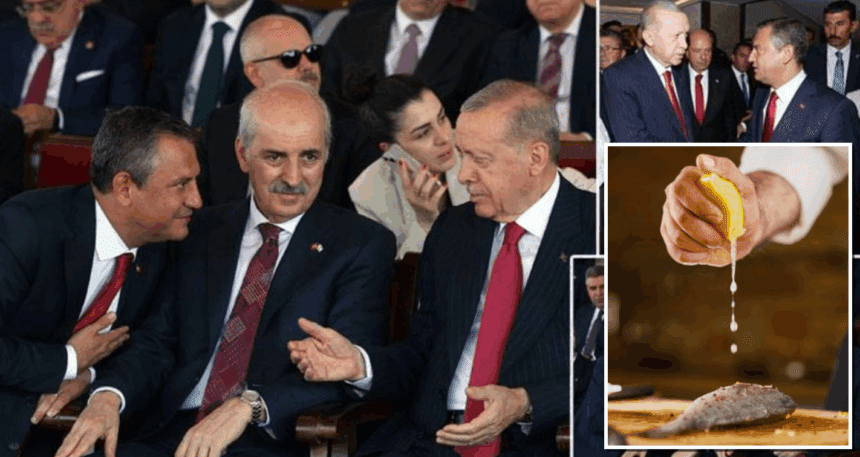Özgür Özel recently sat down with the Financial Times—just days after a court move toppled the CHP’s Istanbul provincial leadership—and the interview itself poses a hard question. He vowed to take past elections and referendums to court, hinted he would answer Erdoğan’s “dirty game” with “similar cunning,” and floated mass, peaceful civil-disobedience if the ‘squeeze‘ continues. The substance is defensible. The timing is not. If these are the right tools now, why weren’t they deployed when they were cheaper and the opposition’s leverage was greater?
Because Turkey is not witnessing a string of disconnected prosecutions or procedural spats, it is watching a staged non-contest—a political arena that looks busy, legalistic, and even dramatic, but where uncertainty (the oxygen of real competition) is methodically removed. If Özel is now ready to litigate the past and mobilize the present, the question is why his party didn’t establish these as standing doctrines years ago—when the architecture of today’s “non-contest” was being built in plain sight.
The Squeeze and Serial Incapacitation: From Rerun to Trusteeship
The rehearsal began in 2019, when the election board annulled Ekrem İmamoğlu’s first Istanbul win and forced a rerun—a lesson that certified outcomes could be re-processed by procedure. He won bigger in June, but the signal landed: results are provisional if power says so.
By 2022, the target shifted from outcomes to organizers. Courts upheld prison terms and a political ban for Canan Kaftancıoğlu, the CHP’s Istanbul chair and architect of 2019’s upset—surgically weakening the party’s urban machine and normalizing the courtroom rewiring of party circuitry.
In late 2024, trusteeship logic migrated into the CHP’s orbit. Esenyurt mayor Ahmet Özer was arrested (first on terrorism allegations tied to PKK/KCK, then on a separate procurement case), removed from office, and replaced by a state appointee. What once happened to Kurdish municipalities now reached Istanbul’s CHP belt.
As the new year unfolds, the squeeze has widened to Beşiktaş and Beykoz. In mid-January, Beşiktaş Mayor Rıza Akpolat was detained at his summer home in Balıkesir-Edremit as part of a tender-rigging probe; on January 16 a court ordered the arrest of Akpolat and more than twenty others on allegations ranging from forming/leading a criminal organization to bribery, bid rigging, and money-laundering. He rejected the accusations as a reputational hit.
Six weeks later, at 04:00 on February 27, Beykoz Mayor Alaattin Köseler was taken into custody; by March 3–4, judges had ordered the detention of 13 suspects, including Köseler, in the same contracting-abuse universe. These pre-dawn sweeps—bookended by days-long prosecutorial marathons—moved the tactic from a single “bad apple” story to a template for serial incapacitation of Istanbul’s CHP belt
March 2025 was the leap to the lodestar. İmamoğlu—Erdoğan’s only consistent national rival—was detained on March 19 and jailed on March 23 pending trial. In parallel, waves of probes swept through the metropolitan administration and district halls. By early summer, five waves had rolled; 11 CHP mayors were behind bars, and 100+ municipal employees were in custody across Istanbul, Antalya, and Adana on a cocktail of charges: terror, bribery, bid-rigging, money-laundering, criminal-organization. Even family members and senior technocrats were pulled into the dragnet. This is the migration of “trusteeship” from city halls into the bloodstream of Turkey’s largest opposition-run metropolis.
On September 2, 2025, the blade moved into the party’s wiring closet: a court voided the CHP’s 2023 Istanbul provincial congress, removed the elected chair Özgür Çelik, and installed a caretaker. Six days later, police sprayed their way through the foyer to seat the court’s choice.
The question now is simple: Is there any room left to squeeze? The lemon is nearly wrung; jailing Ekrem İmamoğlu marked the tightest turn of Erdoğan’s vise.
The missed moments and the hard truth
After missing all of these moments, Özel now points to three levers—retroactive litigation against all past elections (including challenges to the 2017 referendum’s last-minute acceptance of unstamped ballots), mass peaceful civil disobedience aimed at halting daily life, and a legal ‘strategy’ premised on the idea that not all judges are captured. Özel also called the litigation course “risky” as it could further ‘weaken‘ the rule of law, saying “Erdoğan is lawless, the CHP is law-abiding.”
These should have been standing doctrines, deployed while institutional capital still existed. The decisive hour was March 2025, when Ekrem İmamoğlu was detained and then jailed. In March, Turkey saw its broadest, least partisan surge of sympathy in years. That was the moment to escalate—lawful, sustained, disciplined mass action with a clear rule-of-law frame—before the regime reset the stage. Instead, the energy bled into statements and studio hits. A leadership that manages a shock instead of mobilizing it forfeits momentum.
Perhaps the bluntest question is this: did Özel sidestep those moments—and the very moves he now touts—because he is, in practice, a product of the non-contest? And will any “escalation” he undertakes be calibrated to keep that non-contest intact? The late-stage litigation and choreographed “civil disobedience” operate as proofs of life for the system—set-piece gestures that signal pluralism to foreign capitals while changing nothing essential at home. Even as Özel calls the litigation track “risky” because it could further “weaken the rule of law“, his assurance that “not all judges are under Erdoğan’s control” serves as a legitimacy voucher, used whenever the government needs to claim the courts are independent enough.
A credible opposition leader does not wait for a court-engineered crisis at his own party headquarters to discover the tools of resistance; he uses them while he still has institutional capital to do so, activating bar associations, unions, universities and business platforms such as TÜSİAD, despite attempts to sideline them, and turning broad public will into disciplined protest. As the saying goes, “Bor’s market is over—ride the donkey to Niğde”; the opportunity has passed, and what remains is the grinding route toward dynastic autocracy.
There’s also a real possibility he never gets to use any of these levers at all. If a court annuls the last party congress on grounds of mutlak butlan (absolute nullity), the chair’s election is void ex tunc—as if it never happened. In that scenario, Özel would likely lose the gavel and, with it, the formal standing to file cases, issue binding instructions, or commit the party to a program of civil resistance. An interim board would speak for the CHP while appeals crawl through the system—the textbook case of escalation from weakness, not strength.
However, we do not accept such an outcome, as Erdoğan is happy and comfortable with Özgür Özel’s role in this non-contest: a stage-managed rivalry in which Özgür Özel plays the indispensable counterweight—visible enough to preserve the image of competition, yet contained enough to never inject real uncertainty. Keeping him in that role presents Erdoğan exactly what he wants: an opposition that litigates yesterday instead of organizing tomorrow, that channels public anger into procedures already captured, and that mistakes courtrooms for politics—thereby re-legitimizing the very institutions that choreograph this non-contest.
Even if Erdoğan were to wring the lemon dry completely, another manufactured judicial crisis—say, toying with annulling the party’s last congress on “absolute nullity” (mutlak butlan) grounds—would only refresh the theatre; the rules would remain unchanged. And, as we discussed, it could boomerang by catalyzing a new centrist party that Turkey badly needs.
Last but not least, by suddenly filing lawsuits to invalidate every past election that Erdoğan ‘won,’ Özgür Özel and his team risk looking complicit in a retroactive whitewash—especially of the last presidential race, when numerous credible polls showed Kılıçdaroğlu ahead. Put bluntly, it exposes the betrayal of Kılıçdaroğlu by the very camp now filing these suits —and how those actors have aided Erdoğan’s dynastic project ever since the staged 2016 coup attempt.
By: News About Turkey (NAT)



